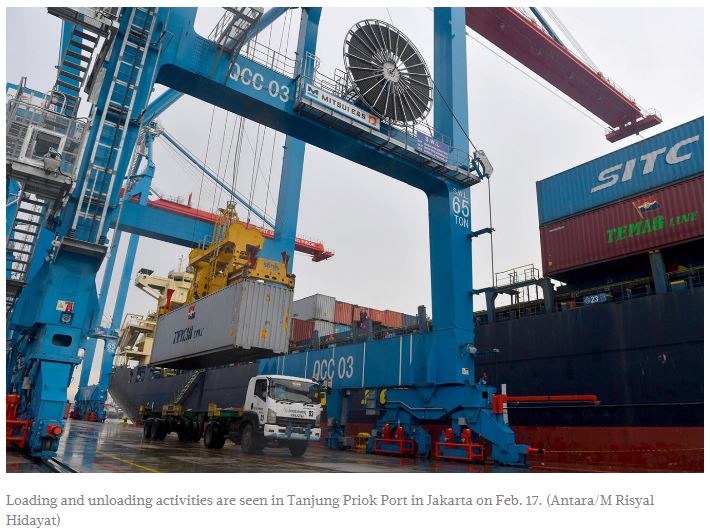Indonesia expects to sign RCEP in mid-November
SHARES Indonesia expects to sign the Regional Comprehensive Economic Partnership (RCEP) in mid-November as the countries concerned finish negotiating the trade issues.
The government is looking to sign the deal on Nov. 14, said Netty Muharni, the deputy assistant for regional and subregional economic cooperation at the Office of the Coordinating Economic Affairs Minister.
Indonesian officials said that ASEAN member countries, with Australia, China, Japan, New Zealand and South Korea as participating countries, had finished negotiating the technical issues of the trade deal and carried out the legal scrubbing up of the agreement text.
“After that, there will be a ratification process that can take up to two years before [the RCEP] comes into force, which is possible only if six ASEAN countries and three partners have ratified it,” Netty said in a virtual discussion on Monday.
The participating countries, which collectively account for nearly one-third of the global economy, are expected to sign the trade deal in November, about eight years after the negotiations were launched.
For Indonesia, around US$95 billion, 61.65 percent, of its total exports last year were channeled to the RCEP countries, according to Antonius Yudi Triantoro, the director of ASEAN negotiations at the Trade Ministry, quoting data from Statistics Indonesia (BPS).
RCEP countries accounted for $106 billion, 71.38 percent, of Indonesia’s total imports last year. Since 2012, Indonesia has booked trade deficits with the RCEP countries.
Yudi said the trade deal would cover rules related to important trade issues, such as administration, processes and a legal framework for e-commerce.
“Indeed, it is not easy to utilize the RCEP for our national interest,” said Yudi. “To that end, there is something we need to do, namely internal policy adjustment to create a conducive, efficient and competitive business climate so that we can benefit from the opportunities of the RCEP.”
Anda Nugroho, a researcher at the Fiscal Policy Agency (BKF), estimated the trade deal would raise Indonesia’s GDP by 0.05 percent in 2032.
The country’s timber, paper and electronics industries were projected to benefit from the RCEP, Anda said.
“The RCEP potentially brings about a positive impact although the magnitude is very small. However, it will increase over time,” Anda added.
“If Indonesia did not take part in the RCEP, the impact would be negative for Indonesia, especially in the long run as it will accumulate and we will slump as other countries take the opportunities.”
Source: https://www.thejakartapost.com/news/2020/10/27/indonesia-expects-to-sign-rcep-in-mid-november.html


 English
English




